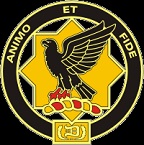ORIGINAL: morvwilson
Now to the american generals.
Firstly, no I do not think you have to be american to be a good general, that just happened to be the pool of names I dipped into. There have been many good generals from many countries, even some from England![;)]
Flattery will get you no where...[;)]
Pershing, when he first arrived in France first had to fight his allies in order to keep an american army intact at all! Both the French and British Commanders wanted to feed the American troops in peicmeal through out the line as replacements and not have a seperate american army at all. Pershing did manage to get training for his troops in trench warfare. But, some lessons can only be learned on the job. Pershing did make some mistakes but he learned from them and did not repeat them as the British and French high command did.
Pershing had to learnt hem because he refused to take advice and wanted his command to fight together. Many of the mistakes were basic ones that British and French experience could have avoided for him. He also adopted frontal assaults that had proven costly in the war to date, something he must have been aware of.
The British also learned from their mistakes. Their operational method evolved throughout the war to the point where half of all prisoners taken in the latter half of 1918 were taken by the British and they won a string of battles on their way into Germany. By war's end, The British Army was arguably the most combat effective force on the continent.
As to Patton, lets face it he was a strange duck! I do not think I would like to sit down to dinner with the guy but he did turn in results. As I recall, he did turn on the southern flank of the Bulge a lot quicker the Monty.
I have never seen the Patton attraction. On Sicily and in France, he captured large numbers of people who either wanted to surrender or penned themselves in and waited for it. He beat Monty into Messina by an hour if memory serves and Monty was supposed to be cautious. The essential point was not that he got there an hour before Monty but that both got there several hours after the Germans left.
In Lorraine he was poor. The Bulge is overrated and he was party to a couple of unsavoury incidents. One of which should (IMHO) have seen him court martialled.
As to your comparison between Monty and Grant, that is a very hard thing to support. Sepperate wars, time and situations. Grant won on logistics plane and simple. Both Lee and Grant knew how to maneuver but Lee could not replace manpower.
I think Grant was competent on the Operational plane, no more, but he was better on the strategic plane. He also had more stomach than anyone else who had commanded the Union Forces to that point and that ultimately led him to fight on past days (Wilderness, Cold Harbour) when earlier Union commanders would have turned for home. He constantly attempted to turn Lee's flank but never managed it and I suspect he was merely trying to lever Lee out of prepared positions to fight somewhere else.
Lee was better operationally, and perhaps the closest thing to Napoleon the 19th century produced. Chancellorsville and 2nd Bull Run are as classically Napoleonic as you can get. Bold, a gamble, very dangerous, he also has the benefit of solid subordinates as Napoleon had and was not afraid to usethem. But, like the Emperor, he was prone to error, and usually at crucial points.
Lee as and Napoleonic figure, thats funny! He was a West Point graduate and in those days do you know what that made him? an engineer! There was not all that much instruction on actual war fighting in those days at West point. Lee's own troops at first called him "the king of spades" for his fondness of entrenching. It was MacClellan that thought he looked Napoleonic. Take a look at some of his old photos. He even did the same poses!
The comparison for me rests on their styles. Napoleon liked to fix whilst maneuring onto a flank. As above, Napoleon wuld have applauded bull Run 2 and Chancellorsville.
As for the style of fighting, you are right. The american style is very direct because that is the way you end wars quickly and have less blood shed. This style of fighting, in my opinion, got its start during the American Civil War with Grant and Sherman.
Well, the direct style is very attritional, so I wouldn't agree it ends wars quickly. the quickest campaigns in WWII were waged by the Germans in France, the low countries, the Balkans etc. I think the Western Allied style in WWII essentially ground the enemy down, but there was a price to pay in blood. I think as a style it fdid get started in the Civil war, because it was by relentlessly applying combat power and grinding the enemy down with his superior resources that Grant won.
Regards,
IronDuke







